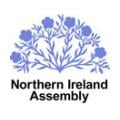Knowledge Exchange Seminar - 24 May 2017 - Environmental Issues

NI Assembly RaISe
Knowledge Exchange Seminar - 24 May 2017 - Environmental Issues

Dr Heather Ritchie (Ulster) - Marine Spatial Planning in Northern Ireland: Towards Productive Seas and Resilient Communities?
Until recently there was no single system in place to guide development and management decisions at sea. Marine Spatial Planning (MSP) has emerged in response to the increasing use and pressures placed on the marine environment in terms of managing competing interests. The forthcoming publication of the draft Marine Plan will be a milestone for Northern Ireland and presents an opportunity to support sustainable growth within the maritime sector as a whole, and secure a more resilient future for our coastal communities. This new domain for planning requires knowledge, understanding and skills around the blue growth agenda to support the necessary interactions and enable stakeholders to participate effectively; across different jurisdictions and the land/sea divide. This is a timely opportunity to explore how best to raise civic and stakeholder awareness, understanding and engagement, both in the forthcoming consultation period of the plan, and when the new plans come into being. This presentation outlines the findings from an interdisciplinary workshop which sought to identify key lessons from elsewhere (including Scotland and North America) and develop a lay person’s guide to MSP. The presentation introduces the guide as a tool for enhancing stakeholder engagement and supporting the development of productive seas and resilient coastal communities.
Dr Linda McElduff (Ulster) - Planning for Coastal Community Resilience
Coastal communities on the island of Ireland face a range of structural and locational challenges, including changing environmental parameters and the risk of specific coastal hazards. Such challenges have clear implications for the planning and regeneration of coastal resorts, as well as integrated coastal management. Some coastal communities are seeking to increase their adaptability through various regeneration schemes and investment strategies. In Northern Ireland the forthcoming Marine Plan presents an opportunity to increase the sustainability of the marine resource and the resilience of our coastal communities. Yet, there is an identified knowledge gap pertaining to the dynamism of the coast as part of a wider social-ecological system. This presentation highlights the need to enhance understandings of coastal resilience and advance a more strategic approach to coastal planning and regeneration. It draws upon the findings from qualitative research undertaken across the island of Irelandwhere a call for more coastal specific interventions and policy development was identified at the local level. The presentation puts forward recommendations for developing a more strategic vision in securing resilient outcomes for our coastal communities.
Prof Keith Attenborough and Dr Shahram Taherzadeh (OU) - Environmental methods of surface transport noise reduction
Noise barriers are a common method of combating noise (mentioned under ‘environment’ in the KESS hot topics list) but they may be unsightly and tend to divide communities because any gaps affect their efficiency. The presentation will describe alternative methods based on the results of the Open University led parts of an EC FP7 project (HOSANNA www.greener-cities.eu). These methods are not considered at present by planners, highway engineers or noise consultants but are particularly relevant to cost-effective sustainable environmental policies in predominantly rural areas (common in Northern Ireland) and in cities, since they exploit and enhance the environment between the noise source and nearby people. They include (i) deployment of acoustically-soft ground such as non-compacted grassland; (ii) growing crops; (iii) planting tree belts and forests and (iv) deliberately introducing low (0.3 m high or less) wall configurations over hard ground. Tree belts can be effective noise barriers by combining sound absorption by decaying leaf litter, foliage attenuation and ‘sonic crystal’ effects through planting patterns. A particularly effective form of low wall design is a lattice. MLAs would benefit from knowing about these possibilities when making policies affecting land use and the planning of new developments near surface transport corridors.
Date and Time
Location
Parliament Buidlings
Stormont
Belfast
BT4 3XX
United Kingdom



